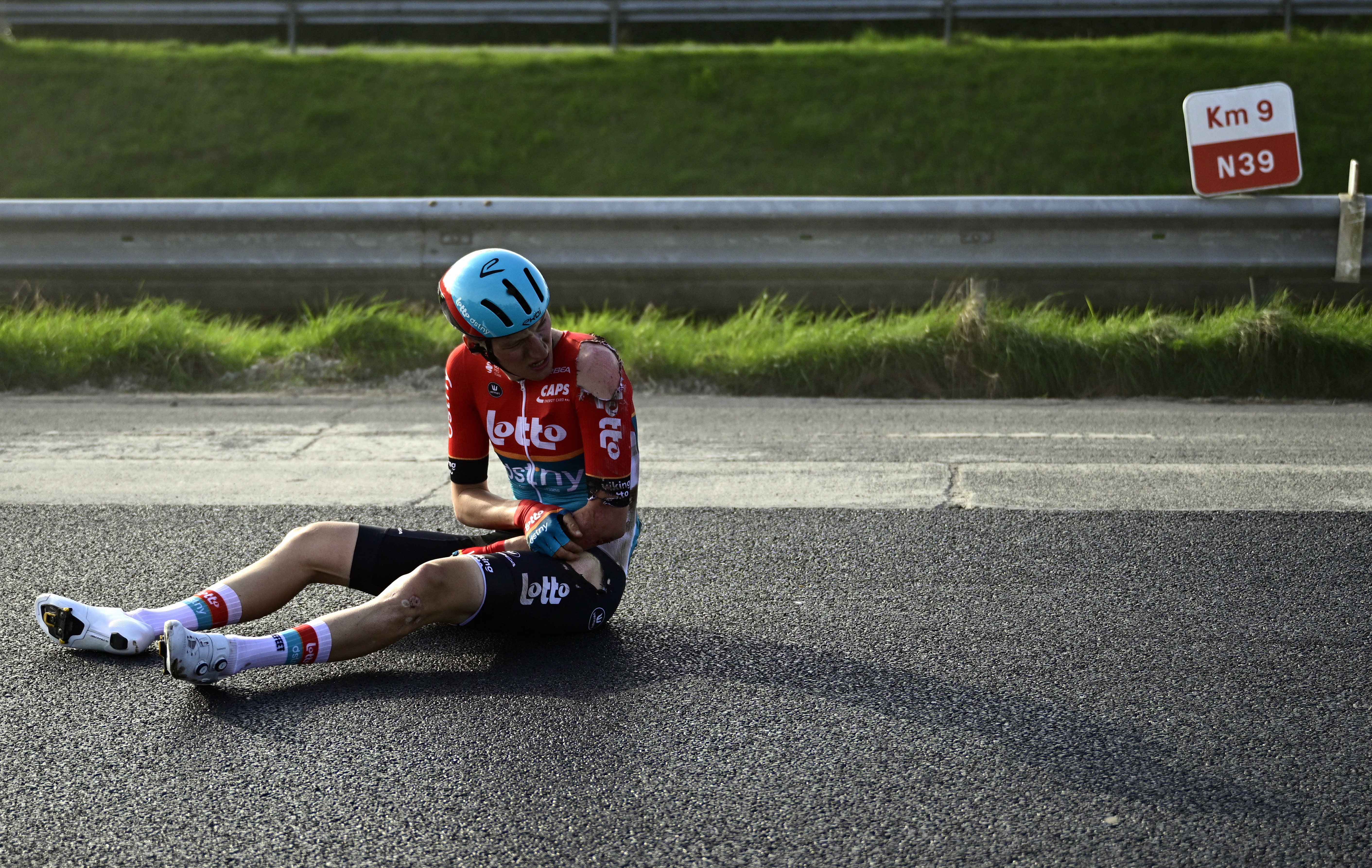
Professional cycling is more dangerous than ever, according to the pros, with faster speeds, more animated racing and sub-par safety measures heightening the risk of crashing.
Earlier this month, a series of high-profile crashes triggered debates within the sport over rider safety. Grand Tour winners Primož Roglič, Remco Evenepoel and Jonas Vingegaard are all currently sidelined, having abandoned Itzulia Basque Country, the latter two with multiple fractures. Wout van Aert, too, broke numerous bones in a hard fall at Dwars door Vlaanderen.
For the Belgian's Visma-Lease a Bike team-mate, Matteo Jorgenson, the sport is heading into a "scary cycle".
"Personally, as a rider, you're watching a race and you see a crash, like I did in Basque, and it makes you think, 'Ok, the one thing that I can do to stay safe in a race is to stay in the front as much as I can'," the American said. "The problem is, I wasn't the only one who saw these crashes, and I'm sure a lot of other riders have the same reaction."
"We see things are getting dangerous, so we're all now fighting all the time to be in front. The fact we're doing that is making it more likely that we’re going to crash again. It’s kind of a cycle that I see happening, and I don’t see a solution really for it."
At this year's Tour of the Alps, Luis Angel Maté (Euskaltel-Euskadi), a rider with over 15 years of experience, said he believes cycling is "more dangerous nowadays".
"The bikes are quicker, the roads are better, but, above all, cycling is a reflection of society," the 40-year-old told Cycling Weekly. "Today's society moves very fast. Everybody wants to win, more than anything else. There are lots of sponsors, and teams need to win to justify those big investments. This creates a lot of competitiveness. I think there's more competitiveness today than when I started many years ago."
For the Spaniard, one of the peloton's statesmen, the recent crashes should prompt riders to reflect on how they race and "learn to use [their] brakes".
"We're the first ones responsible," he said. "If a bend can be taken at 40km/h, we shouldn't try to go into it at 50km/h.
"There's no point in going flat-out with 100km to go. We need to show some good sense and realise that it's not worth winning at any price."

Riders also agree that more safety measures need to be put in place. In recent months, Adam Hansen, president of the CPA riders' union, has worked closely with race organisers to implement changes, such as inserting a chicane at the entrance of Paris-Roubaix's Forest of Arenberg.
In an open letter published last week, Ineos Grenadiers owner Jim Ratcliffe called for "real action" to ensure safety. Ratcliffe's riders would like to see similar.
"We're very much a reactive sport," said Ben Swift, Ineos Grenadiers' two-time British champion, at the Tour of the Alps. "It's very difficult. We race on open roads. We don't race in stadiums or tracks, but I think race organisers need to make much more precautions for it.
"They make courses spectacular, like this one, and they need to go there and make sure it's safe. Put barriers where we need them to be, extra marshals, extra stuff like this."
Swift, who raced his first Paris-Roubaix this month at the age of 36, commended organiser ASO on the addition of a chicane into the route. "It was a last-minute solution, and it worked very well," he said. "We need stuff like this, but it needs to be done in the correct way."







